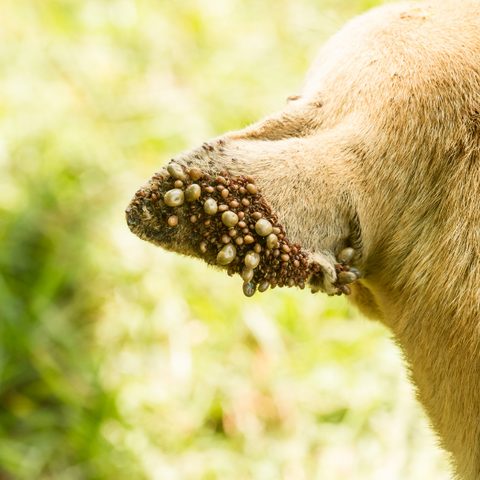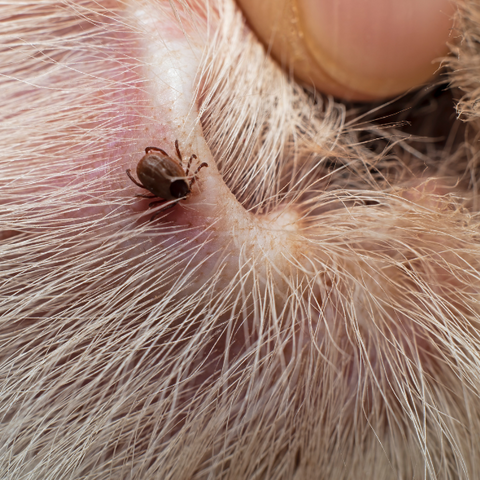
How to keep your dog healthy without ticks!
Share
There is no dog who does not love to play outside and enjoy nature, but this activity can prove dangerous due to ticks.
Ticks are pests that lurk in damp places, grasses and bushes but can even be found in sand. When a tick gets on the dog, it attaches itself to it and sucks the blood of its host. Ticks are most likely to be seen in the spring, summer or fall, but they are hardy and can survive in sub-zero temperatures.
If you notice a tick on your dog's fur, then you should remove it immediately - but never by pulling it! Read below how to do it correctly but also what you should pay attention to for proper prevention and complete protection of the dog from ticks.

Why are ticks dangerous for my dog?
Ticks can transmit various diseases to the dog, so it is important to adequately protect him from such pests.
Diseases that can be transmitted by ticks are:
- Lyme disease (borreliosis)
- Bartonellosis
- Ehrlichiosis
- Rocky Mountain spotted fever
- Tularemia
- Crimean-Congo hemorrhagic fever.
These are very serious diseases that can cause anemia, encephalitis, paralysis or even death in the animal.
How do I know if my dog has ticks?
It is good to thoroughly look at the dog's coat after every walk outside, even if the walk takes place for an extended period of time in your garden.
Ticks usually hide in dark, enclosed areas of the body, such as inside the ears, between the toes and soles of the feet, in the armpits and under the tail.
Long-haired dogs in particular should be carefully checked and you may need to feel the skin with your fingers if your dog's coat is very thick.
Try it with your own dense tsatsara that will make searching a breeze!

How do I safely remove a tick from my dog?
The goal is to remove the tick without leaving its legs - or any of its legs - on the dog's skin. Also, the tick must come out alive, so that it does not leave saliva or blood at the bite site, because in this way some dangerous disease can be transmitted.
Tick removal can be done with tweezers or even better with the special tick removal tweezers . You should firmly grasp the tick with this and not twist it, so that it is completely removed.
After removing the tick, you can douse it with rubbing alcohol to kill it. Don't leave it on the ground, because it will simply live, breed, and possibly reattach to the dog.
At the site of the bite, you can apply a special spray for bites that relieves the itch and acts as a repellant for parasites.
An alternative way to remove the tick is to spray it directly with a chemical spray that will kill it almost immediately and it will fall off.
How do I keep my dog tick-free?
The best thing to do is to take all the preventive measures so that your dog can enjoy his walk outside without being at risk of ticks.
The dog should wear an anti-parasitic collar all year round that acts as a deterrent to ticks. So, even if he finds himself in an area with ticks, they won't climb on him.
In addition, all year round it is now correct to apply to your dog once a month an ampoule that repels ticks or kills those that may have already inhabited your dog's body. Instead of an ampoule or together with it for additional protection, you can also spray the dog with an antiparasitic spray .
Find at Petastero everything you will need for the complete protection of your dog from ticks at extremely low prices.




